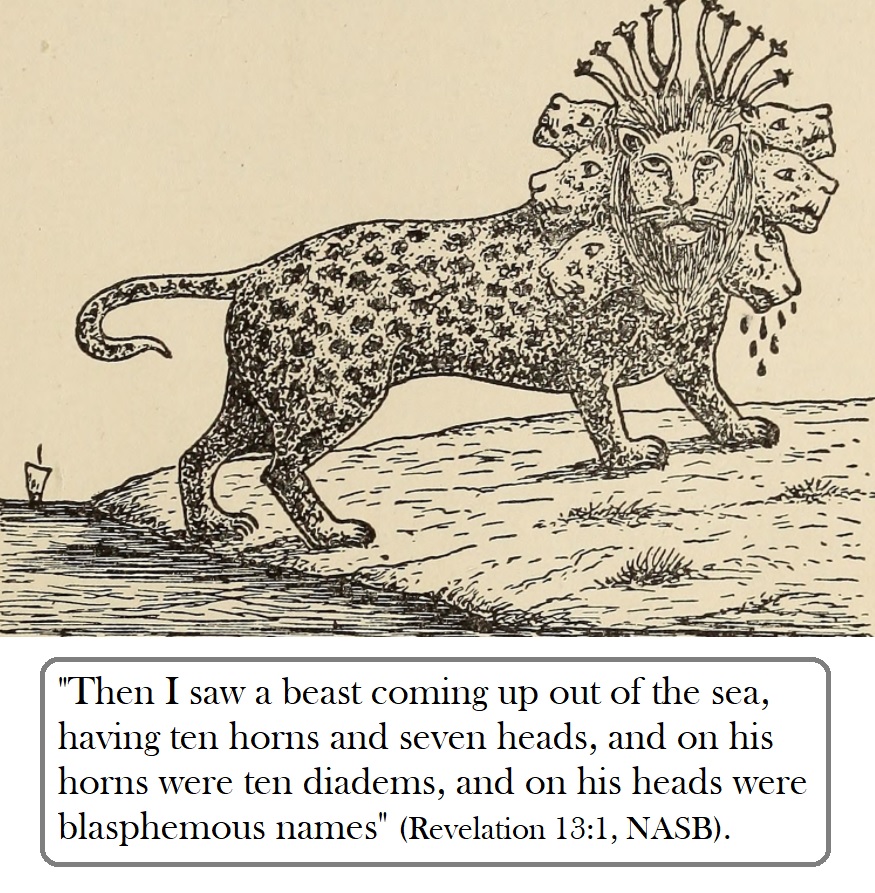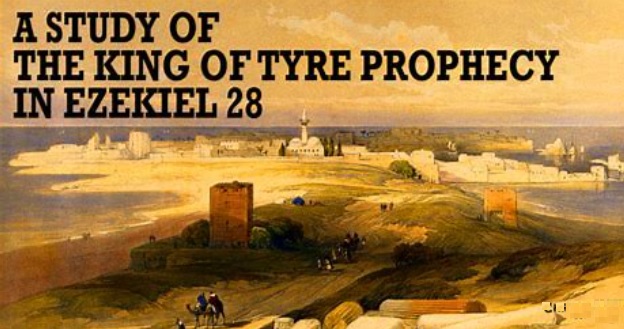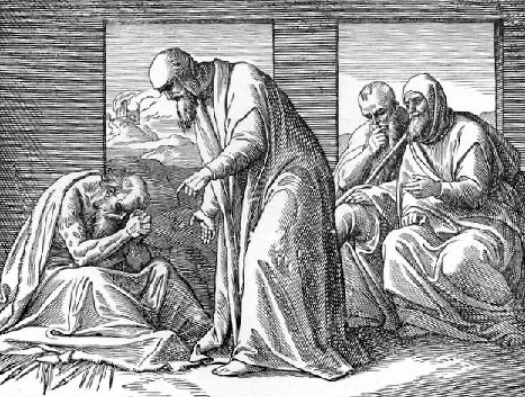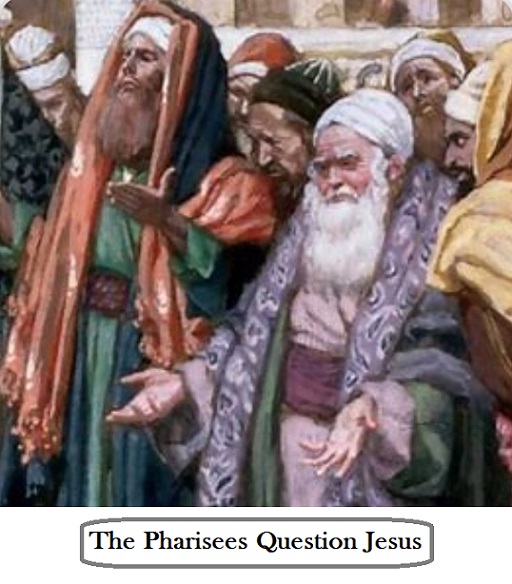“Go therefore and make disciples of all the nations…teaching them to observe all that I commanded you; and lo, I am with you always, even to the end of the age” (Matthew 28:19-20, NASB).
——————–
Contents:
1) Lessons from the Ark (Kyle Pope)
2) Memorials (Dennis Abernathy)
3) Don’t Treat Prayer Like a Spare Tire (Mike Johnson)
4) The Peaceful Coexistence of God’s People in His Kingdom (video sermon, Tom Edwards)
5) News & Notes
——————–

-1-
Lessons from the Ark
Kyle Pope
In 1981 a movie came out that was a fictional adventure entitled Raiders of the Lost Ark about an adventurous archaeologist named Indiana Jones who gets caught up in a search for the biblical Ark of the Covenant. The film was not only the top-grossing film of that year, but has remained one of the highest grossing films of all time. Most people have seen the movie and could tell the highlights of its story line. Fewer people, however, could relate the true lessons that the real Ark of the Covenant teaches us.
What Was the Ark of the Covenant?
The Ark of the Covenant was a wooden box overlaid with gold that God commanded the Israelites to construct after their exodus from Egypt. It sat in the most holy part of the tabernacle (and later in the temple). On its sides were rings into which two wooden poles, also overlaid with gold, were inserted. On top of the chest was a lid called the “mercy seat,” with two angelic figures called “cherubim” on each end of the lid. While the Bible doesn’t give a detailed description of these cherubim, we know they had “wings” stretched out towards one another (Exod. 25:20). In many ancient Near Eastern cultures cherubim were portrayed as creatures with the body of a lion, wings of a bird, and the head of a man. The Ark contained the tablets of testimony, Aaron’s rod that budded and the golden pot of manna (Heb. 9:4). A complete description is given in Exodus 25:10-22.
The Ark was a sacred object around which all Israelite worship of God centered. It was sacred, not because of its beauty or as some type of idolatrous relic to be revered. It was sacred because it was the place where God spoke to Israel. Referring to the “mercy seat” God said, “there I will meet with you, and I will speak with you from above the mercy seat, from between the two cherubim which are on the ark of the Testimony, about everything which I will give you in commandment to the children of Israel” (Exod. 25:22, NKJV). The Ark was only to be carried by the Levites, the tribe from which all priests were to come (Deut. 10:8). It was placed in the most holy place of the tabernacle, then later in the most holy place of the temple. The High Priest came before the Ark once a year, after offering a sacrifice for sin (Lev. 16:2-3; Heb. 9:7). While God’s presence fills heaven and earth (Jer. 23:24), during the time God’s covenant was in place with the Israelites, His presence was focused in a special way upon the Ark of the Covenant. In the destruction of the city of Jericho the Ark of the Covenant was carried by the priests as they marched around the city seven days leading to the collapse of the walls in accordance with God’s command.
What lessons does this ancient object of Old Covenant worship teach us today?
1. Obedience. When the Lord revealed how the Israelites were to construct the Ark and then how it was to be used, the Lord expected obedience! Scripture tells us that Bezaleel, an Israelite craftsman, followed every detail of the instructions that the Lord had given (Exod. 37:1-9). Years later God’s expectations of absolute obedience were further underscored. A man named Uzzah reached out his hand to steady the Ark as it was carried on an ox-cart. Uzzah was not authorized to touch the Ark and because of this the Lord struck him dead! (2 Sam. 6.) The Ark teaches us that God demands our obedience.
2. The Holiness of God. Scripture tells us that the Ark was a symbol of the heavenly realities of God’s glory. The Hebrew writer describes the various objects that were in the two chambers of the tabernacle (and later the temple) called the Holy Place and the Most Holy Place. In describing these things he calls them “copies of the things in heaven” (Heb. 9:23). It is unclear if this is literal or these objects symbolized spiritual realities of things in heaven. It is clear that in several passages in the Old Testament God is described as the One who “dwells (or “sitteth” KJV) between the cherubim” (Psa. 99:1; cf. 1 Sam. 4:4; 2 Sam. 6:2; 2 Kings 19:15; 1 Chron. 13:6; Psa. 80:1; Isa. 37:16). One principle this clearly illustrates is God’s separation from sin. Do we remember what happened after Adam and Eve sinned? Before their sin they enjoyed direct access to God in Eden. God’s nature, however, is such that any violation of His word cannot be tolerated. Sin cannot come into His presence. When the man and woman were expelled from Eden we are told that God “placed cherubim at the east of the garden of Eden, and a flaming sword which turned every way, to guard the way to the tree of life” (Gen. 3:24). The Ark symbolized God’s separation from man because of sin and the absolute holiness of His nature.
3. The Means of Access to God. Whether the Ark of the Covenant still existed in the time of Jesus or not is unclear. In Josephus’ account of the Roman general Pompey entering the Most Holy Place before the time of Christ, he mentions the presence of the golden table and lampstand, but not the Ark of the Covenant (Antiquities of the Jews 14.4.4). The original Ark may have been destroyed or carried off in the fall of Jerusalem recorded in 2 Chronicles 36:19. Jesus’ life and death, however, introduced a new and profound opportunity to mankind. Jeremiah had prophesied about a time when the people would no longer have to look to the Ark. Generations of souls had not been granted access to the most holy part of the temple before the time of Jesus’ death. Yet, the Bible tells us that when Jesus died, “the veil of the temple was torn in two from top to bottom; and the earth quaked, and the rocks were split” (Matt. 27:51). This event demonstrated what Jesus offered to mankind — access to God. Was mankind no longer separated from God because of sin? No, but a means of access to God had been opened. The Hebrew writer tells us that in Jesus’ death He opened the way of access to God. He declared, “For Christ has not entered the holy places made with hands, which are copies of the true, but into heaven itself, now to appear in the presence of God for us” (Heb. 9:24). Christ offers mankind the way to access the holiness of God. The lesson is that while God still requires obedience, and is still separate from sin, through Christ (and Christ alone) there is access to God. All human beings must take advantage of the opportunity that is granted to us to attain access to God through faith and obedience to the gospel of Jesus Christ. Failure to do so leaves us cut off from access to God.
— Via Faithful Sayings, Issue 15.46, November 17, 2013
——————–

-2-
Memorials
Dennis Abernathy
A memorial is “anything, as a monument, intended to preserve the memory of a person or event.” There are many memorials, located in prominent places in many cities and towns. Countries have statues celebrating leaders and great men, and their various accomplishments. Memorials also take the form of special days, set aside to remember special events, like the Fourth of July, Thanksgiving, Memorial Day, etc., or special men, like Lincoln, Washington, or Christopher Columbus. But the greatest of all memorials is the Lord’s Supper.
The Lord’s Supper was instituted by Jesus at the Passover Feast, just prior to His crucifixion. Its greatness is seen in what it represents: the broken body and the shed blood of Jesus. Jesus said in Matt. 26:28: “Jesus took bread, blessed and broke it, and gave it the disciples and said, take eat, this is my body. Then He took the cup, and gave thanks, and gave it to them, saying, drink from it all of you. For this is My blood of the new covenant, which is shed for many for the remission of sins.” The apostle Paul reiterated the same (1 Cor. 11: 23-26), showing its solemnity and purpose (vs. 27-33). Could there ever be a greater and more fitting memorial?
We can memorialize men, but we can never pay tribute to anyone who did more for mankind than did Jesus. We can pay tribute to many battles, but never one that had more significance than when Jesus overcame sin and death for fallen man. Each first day of the week, we are again reminded of His great sacrifice. Observing this great memorial helps us remember, until He comes again, what He has done for us. It is central to our faith and service to the One who died for us. What a great memorial, with great meaning, to be observed with great joy and reverence. Think on these things.
— Via Search for Truth, Volume XIII, Number 30, February 21, 2021
——————–

-3-
Don’t Treat Prayer Like a Spare Tire
Mike Johnson
Do you spend a lot of time thinking about the spare tire in your automobile? Many people do not. Many do not even check to see if they have a spare tire in their trunk. However, there is a time when all attention is on the spare tire, and that is when one of the other tires goes flat. Suddenly, in this emergency, the spare tire gets much attention.
Many people treat prayer in the same way that they treat their spare tire. They neglect prayer most of the time and only turn to it in cases of an emergency. Prayer is not a part of their lives, but it is just something that they occasionally turn to when there is some great need.
Prayer should be an essential part of the life of a child of God. It should not be an occasional endeavor. Jesus prayed a great deal, and we are to be followers of Jesus. A good question is, “How can a prayerless person be a follower of Him who prayed so much?”
I Thessalonians 5:17 says, “Pray without ceasing.” This verse does not mean we are to be involved in constant prayer. Instead, “without ceasing” means that we are to be regularly engaged in prayer. We are never to abandon it; it is to be a part of our lives.
Another critical passage is Romans 12:12. This passage says that we are to “continue steadfastly” in prayer. The NASB says, “devoted to prayer.”
We need to make sure that we do not treat prayer like people generally handle their spare tires. Prayer should not merely be something to which we turn in an emergency. Instead, it should be an essential part of our lives.
— Via Seeking Things Above, Volume 1, Number 2, May 2020
——————–
-4-
The Peaceful Coexistence of God’s People in His Kingdom
Tom Edwards
The above is the title for the sermon preached February 28, 2021 and can be accessed at the following link:
https://thomastedwards.com/wordpress/Peace_in_the_Kingdom.mp4
——————–
-5-
News & Notes
Folks to be praying for:
Ginger Ann Montero, who has been having shortness of breath recently, was diagnosed last week with congestive heart failure, which she is now on medication for and will be undergoing more tests.
Rick Cuthbertson did well with his 2nd covid-19 vaccine last Wednesday and will be resuming his cancer treatments — 1 pill every day (Monday through Friday) for 2 weeks, and then 2 weeks off, etc.
Donald & Michelle Sears are both over their recent illnesses (pneumonia preceded by covid-19).
I was also glad to hear that Doyle & Joyce Rittenhouse, who both had their 2nd covid-19 vaccine Friday, will be able to start back to church with us this coming Sunday.
And also for continual prayer: the family and friends of Frankie Olivia Hadley who recently passed away, the staff and residents at the Baptist Village Nursing Home, Nell Teague, Malachi Dowling, Vivian Foster, Larry & Janice Hood, Jim Lively, Rex Hadley, A.J. & Pat Joyner, Ronnie & Melotine Davis, Deborah Medlock, Shirley Davis, Chris Williams, and Cameron Haney.
——————–
The Steps That Lead to Eternal Salvation
1) Hear the gospel — for that is how faith comes (Rom. 10:17; John 20:30-31).
2) Believe in the deity of Jesus Christ (John 8:24; John 3:18).
3) Repent of sins. For every accountable person has sinned (Romans 3:23; Romans 3:10), which causes one to be spiritually dead (Ephesians 2:1) and separated from God (Isaiah 59:1-2; Romans 6:23). Therefore, repentance of sin is necessary (Luke 13:5; Acts 17:30). For whether the sin seems great or small, there will still be the same penalty for either (Matt. 12:36-37; 2 Cor. 5:10) — and even for a lie (Rev. 21:8).
4) Confess faith in Christ (Rom. 10:9-10; Acts 8:36-38).
5) Be baptized in water for the remission of sins (Mark 16:16; Acts 2:38; 22:16; 1 Pet. 3:21). This is the final step that puts one into Christ (Gal. 3:26-27). For from that baptism, one is then raised as a new creature (2 Cor. 5:17), having all sins forgiven and beginning a new life as a Christian (Rom. 6:3-4). For the one being baptized does so “through faith in the working of God” (Col. 2:12). In other words, believing that God will keep His word and forgive after one submits to these necessary steps. And now as a Christian, we then need to…
6) Continue in the faith by living for the Lord; for, if not, salvation can be lost (Matt. 24:13; Heb. 10:36-39; Rev. 2:10; 2 Pet. 2:20-22).
——————–
Tebeau Street
CHURCH OF CHRIST
1402 Tebeau Street, Waycross, GA 31501
We are currently meeting for only our Sunday 10 a.m. worship service each week, due to the coronavirus situation.
evangelist/editor: Tom Edwards (912) 281-9917
Tom@ThomasTEdwards.com
https://thomastedwards.com/go/all.htm/ (older version of the Gospel Observer website, but with bulletins going back to March 4, 1990)







